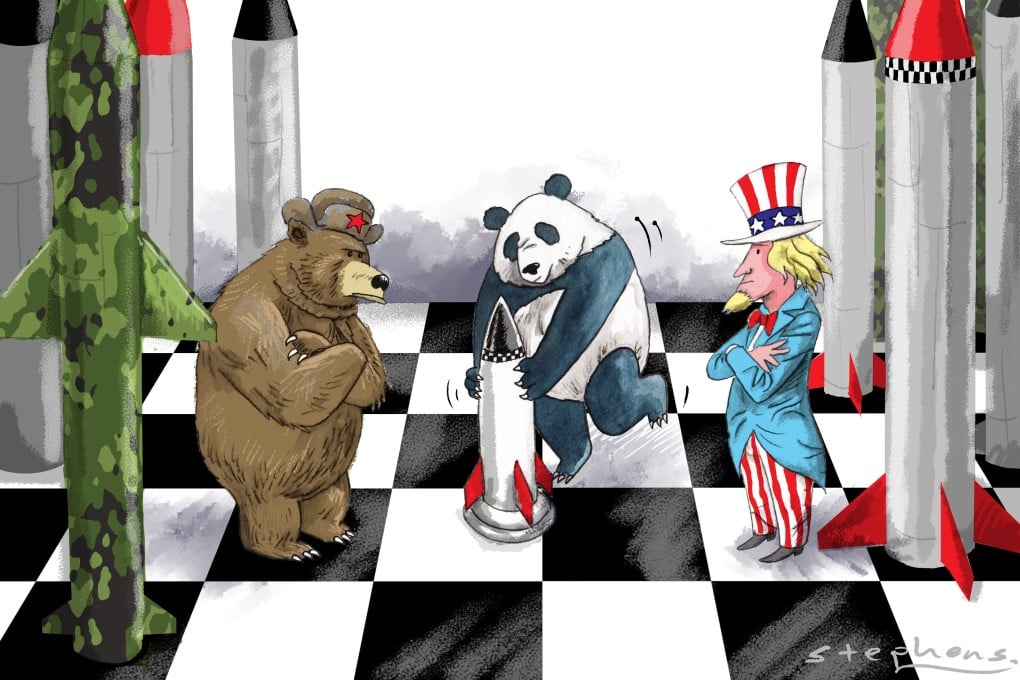Advertisement
Opinion | How China can benefit from joining US, Russia in nuclear arms talks
- Engaging in arms limitation talks is a chance to show Beijing’s commitment to nuclear restraint, a global public good that would be universally supported
- Being part of the conversation would also allow China to press for more stringent restraints on both the US and Russian nuclear arsenals
Reading Time:3 minutes
Why you can trust SCMP
12

The discovery last week of 119 probable missile silo sites under construction in western China has rung alarm bells in Washington. US military personnel and analysts were already raising eyebrows over China’s modernisation of its nuclear weapons and delivery systems.
But even with these new silos and various other programmes, China’s nuclear arsenal will remain a fraction that of the United States and Russia. In fact, the silos appear to be part of a process of China guaranteeing that its nuclear deterrence is effective against larger, more sophisticated rivals.
Nevertheless, despite the disparity in nuclear arsenals, Beijing should change its policy on strategic arms limitation negotiations. Until now, these have been entirely bilateral between the US and Russia. For China, there are various benefits to entering into these negotiations for what would undoubtedly be a public good.
Advertisement
The silos were spotted by satellite imagery. They are thought by analysts to be either for a significant expansion in the number of land-based intercontinental ballistic missiles (ICBM) China can field – currently about 100, according to the latest US Department of Defence report on China’s military capabilities – or to offer Beijing the ability to obfuscate the location of its missiles by moving them between silos.
Whatever the reason for the silo construction, one thing is clear: China continues on its ambitious programme of expanding and improving its nuclear arsenal.
In 2015, Beijing reorganised its military. It transformed the Second Artillery Corps, which managed and operated China’s missiles and warheads, into the PLA Rocket Force, upgrading it to a full military service.
Advertisement
Select Voice
Select Speed
1.00x

